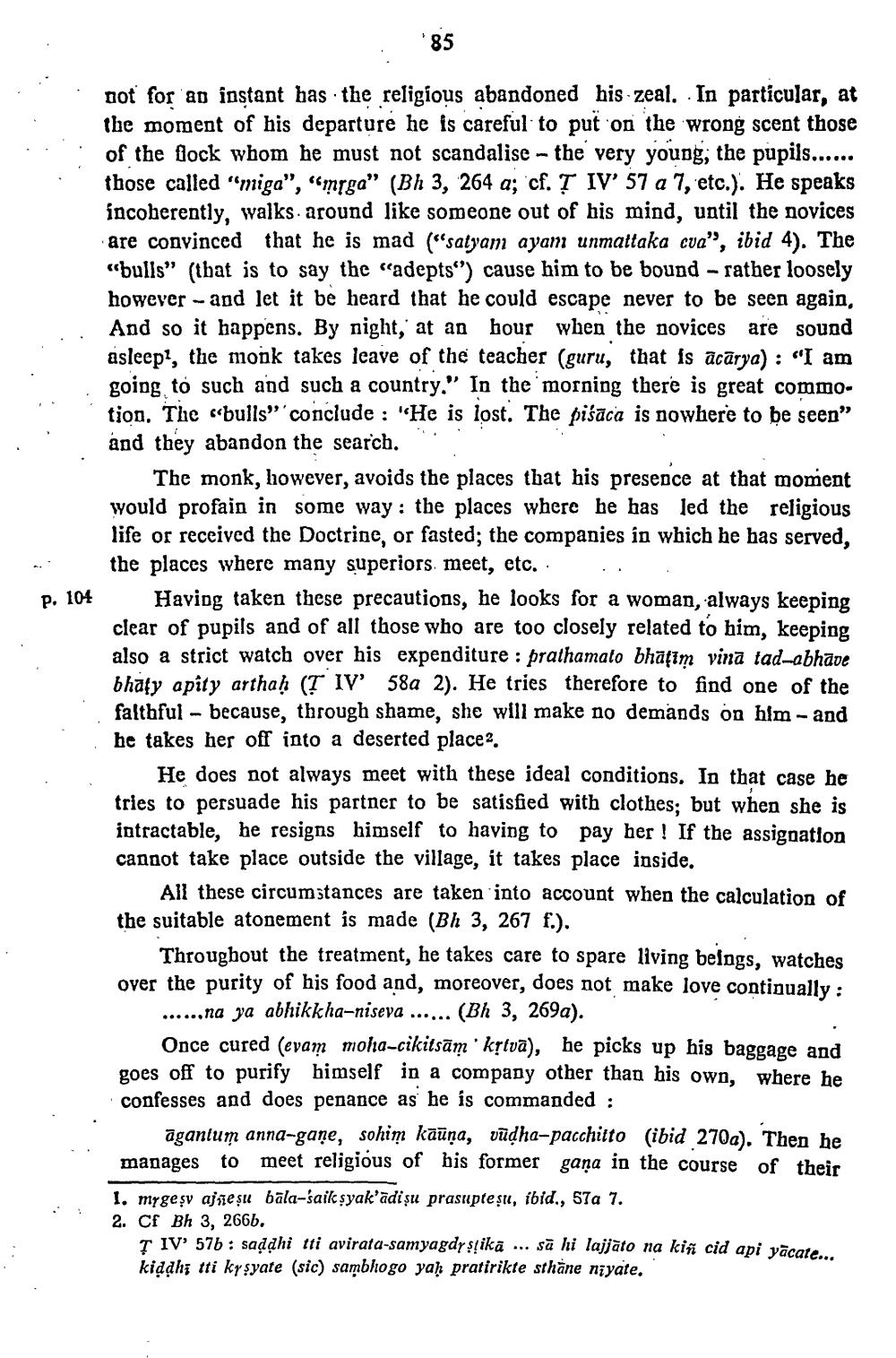________________
.
85
P. 104
not for an instant has the religious abandoned his zeal. . In particular, at the moment of his departure he is careful to put on the wrong scent those of the flock whom he must not scandalise - the very young, the pupils...... those called "miga", "mega" (Bh 3, 264 a; cf. T IV' 57 a 7, etc.). He speaks incoherently, walks around like someone out of his mind, until the novices are convinced that he is mad ("satyam ayam unmattaka cva”, ibid 4). The “bulls" (that is to say the "adepts"') cause him to be bound - rather loosely however - and let it be heard that he could escape never to be seen again, And so it happens. By night, at an hour when the novices are sound asleep?, the monk takes leave of the teacher (guru, that is ācārya) : "I am going to such and such a country." In the morning there is great commotion. The sbulls" conclude : "He is lost. The piśāca is nowhere to be seen" and they abandon the sea
The monk, however, avoids the places that his presence at that moment would profain in some way: the places where he has led the religious life or received the Doctrine, or fasted; the companies in which he has served, the places where many superiors meet, etc. . . . .
Having taken these precautions, he looks for a woman, always keeping clear of pupils and of all those who are too closely related to him, keeping also a strict watch over his expenditure : prathamalo bhāsim vina tad-abhave bhały apity arthah (T IV' 58a 2). He tries therefore to find one of the falthful - because, through shame, she will make no demands on him - and he takes her off into a deserted place.
He does not always meet with these ideal conditions. In that case he tries to persuade his partner to be satisfied with clothes; but when she is intractable, he resigns himself to having to pay her ! If the assignation cannot take place outside the village, it takes place inside.
All these circumstances are taken into account when the calculation of the suitable atonement is made (Bh 3, 267 f.).
Throughout the treatment, he takes care to spare living beings, watches over the purity of his food and, moreover, does not make love continually:
.....na ya abhikkha-niseva ...... (Bh 3, 269a).
Once cured (eyam moha-cikitsām'kstva), he picks up his baggage and goes off to purify himself in a company other than his own, where he confesses and does penance as he is commanded :
ägantum anna-gane, sohim kāūņa, vūdha-pacchitto (ibid 270a). Then he manages to meet religious of his former gana in the course of their 1. mygeșy ajne şu bala-saik syak'adişu prasupte şii, ibid., 57a 7. 2. Cf Bh 3, 266b.
TIV' 576 : saddhi tti avirata-samyagdr slika ... sä hi lajjāto na kiñ cid api yācate... kidahi tti ky syate (sic) sambhogo yaḥ pratirikte sthäne nīyate.




